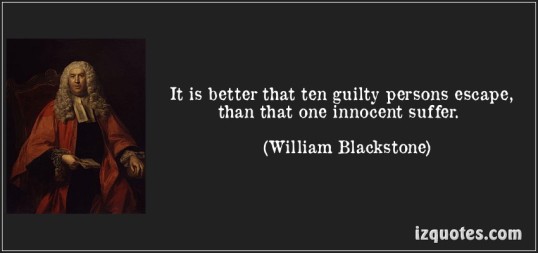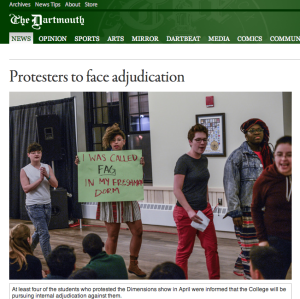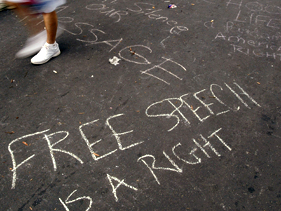The Real Problem with SAE’s Bus Video
“The best lack all conviction, while the worst
Are full of passionate intensity.” —W.B. Yeats, “The Second Coming“
If you’ve read this blog, or if you’re going back and doing so now, you know I’m pro-Greek life. I really like fraternities and sororities and, for the most part, think that they are often the “low hanging fruit” when someone wants to seem like they’re addressing systemic issues of alcohol and drug abuse, rape culture, and other issues that I despise. My premise in earlier writings was that people who want to target Greeks can easily do so because Greeks give them plenty of opportunities, but that the things we vilify them for are done by less targeted areas of a campus community. In other words, if we’re fighting Greeks then fine. If we’re fighting the things we accuse them of then we need to be more systemic in our approach. I have also said that part of the problem is that by segregating themselves, requiring a selection and initiation process, and by being so visible as an exclusive group Greeks are understandable targets of scorn and concern, especially by non-Greeks.
Then the SAE video comes out with a bus full of white kids with names like “Parker,” embodying the privilege that people despise and “proving” what everyone has said about them. Enough people have broken down the video, but I think that there is a really important point being missed in the discussion of whether fraternities are racist or “America’s apartheid.” The video is terrible and I have no doubt that it’s happening elsewhere. In fact, we have already had this discussion when we were talking about sororities at the University of Alabama a year ago. I hate the entrenched privilege and exclusion in many Greek chapters, but the thing that makes me the saddest about that video are the brothers and guests who weren’t chanting.
I’m not sad that they are in a chapter that got kicked off. I’m not sad that they’re embarrassed or that people think they’re racist. I’m sad because they did not have either the tools or the courage to speak up. I’m sad that in the BEST light, this is an organization run by the worst of them. I don’t mean their elected President or other officers, but I mean the guys who put their chapter at risk with every social event, endanger the health and safety of their guests and brothers, and who do so while demanding loyalty and silence from those people in the name of “brotherhood.”
When I spoke at a sorority on “Making Good Bad Decisions” I asked the organizer what she wanted me to talk about. She said that in their group of about 130 there were 20 or some odd sisters who were going to “get them in some real trouble.” This didn’t mean that other 100+ were following all the rules, but that this group were doing things without regard for themselves, their sisters, or their chapter as a whole. I asked “why do you think you guys let them” and the answer was the same as I hear from officers when I help a chapter in disciplinary trouble “nobody wants to be that person” who ruins a good time or seems uncool.
I believe that there are chapters that are irredeemable. I believe that there are chapters that do nothing wrong and meet/exceed every expectation set for them. However, I think most chapters are filled with good men and women who may break some school policies on occasion, but who are adamantly opposed to the same things the rest of us are–hazing, forced consumption of alcohol, sexual assault, racism, homophobia, etc. I also think that many of those chapters don’t have the ability to intervene and address behaviors that are against their organizational and personal values, and that that inability leads to the worst of them controlling how the chapter behaves. When a chapter does not address that behavior and correct it, it is the same thing as embracing it. So when a fraternity in trouble comes to me and tells me that “it’s the seniors” or “this one pledge class” that keeps getting them in trouble I tell them that that stopped being true after the first time they did something with which you disagreed and the chapter did nothing.
The simple fact is that disciplinary action isn’t going to fix anything unless the chapters themselves preempt the need by dealing with those people within their organization that are betraying that organization through their actions. National organizations are suspending and revoking charters and schools are suspending and expelling organizations more than ever, and in some cases disbanding entire Greek programs. This will not stop until fraternities and sororities show that the problems are with a small percentage of their members and are being addressed meaningfully by the majority because, until then, the ones caught are indeed the entire chapter in every way that matters. The obligation for this training should be with the national chapters themselves. College administrators can support this bystander training, but the responsibility needs to come from the organizations that abandon chapters when things go wrong and claim that they are not acting in accordance of the national values. Unless a national organization BOTH teaches values AND how to support and act within those values, they are 100% culpable for the actions of their chapters.
Does your chapter do anything to address harmful or hateful behavior? Does your school provide any bystander training? Let me know.
Next post: Should the Oklahoma SAE’s have been suspended? What about the brothers?







 and safety of the campus community as a whole. A good system also allows administrative discretion to make sure that people aren’t using the nuclear option against students when diplomacy would work. It is that aspect that has failed here, and I cannot believe that the failure is accidental.
and safety of the campus community as a whole. A good system also allows administrative discretion to make sure that people aren’t using the nuclear option against students when diplomacy would work. It is that aspect that has failed here, and I cannot believe that the failure is accidental.

 board considering the appeal should have no knowledge of the case prior to reviewing the records and materials for the appeal. If there is a relationship, especially a direct reporting relationship, between the two it is impossible to prevent a respondent from thinking that relationship played a part. It is almost as important that a system seem fair as it is that it be fair.
board considering the appeal should have no knowledge of the case prior to reviewing the records and materials for the appeal. If there is a relationship, especially a direct reporting relationship, between the two it is impossible to prevent a respondent from thinking that relationship played a part. It is almost as important that a system seem fair as it is that it be fair.


